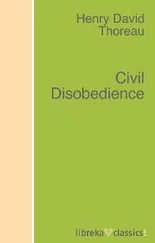for these oversights successive generations have to pay. I think that
it would be _better than this_, for the students, or those who desire
to be benefited by it, even to lay the foundation themselves. The
student who secures his coveted leisure and retirement by
systematically shirking any labor necessary to man obtains but an
ignoble and unprofitable leisure, defrauding himself of the experience
which alone can make leisure fruitful. “But,” says one, “you do not
mean that the students should go to work with their hands instead of
their heads?” I do not mean that exactly, but I mean something which he
might think a good deal like that; I mean that they should not _play_
life, or _study_ it merely, while the community supports them at this
expensive game, but earnestly _live_ it from beginning to end. How
could youths better learn to live than by at once trying the experiment
of living? Methinks this would exercise their minds as much as
mathematics. If I wished a boy to know something about the arts and
sciences, for instance, I would not pursue the common course, which is
merely to send him into the neighborhood of some professor, where any
thing is professed and practised but the art of life;—to survey the
world through a telescope or a microscope, and never with his natural
eye; to study chemistry, and not learn how his bread is made, or
mechanics, and not learn how it is earned; to discover new satellites
to Neptune, and not detect the motes in his eyes, or to what vagabond
he is a satellite himself; or to be devoured by the monsters that swarm
all around him, while contemplating the monsters in a drop of vinegar.
Which would have advanced the most at the end of a month,—the boy who
had made his own jackknife from the ore which he had dug and smelted,
reading as much as would be necessary for this,—or the boy who had
attended the lectures on metallurgy at the Institute in the mean while,
and had received a Rodgers’ penknife from his father? Which would be
most likely to cut his fingers?... To my astonishment I was informed on
leaving college that I had studied navigation!—why, if I had taken one
turn down the harbor I should have known more about it. Even the _poor_
student studies and is taught only _political_ economy, while that
economy of living which is synonymous with philosophy is not even
sincerely professed in our colleges. The consequence is, that while he
is reading Adam Smith, Ricardo, and Say, he runs his father in debt
irretrievably.
As with our colleges, so with a hundred “modern improvements”; there is
an illusion about them; there is not always a positive advance. The
devil goes on exacting compound interest to the last for his early
share and numerous succeeding investments in them. Our inventions are
wont to be pretty toys, which distract our attention from serious
things. They are but improved means to an unimproved end, an end which
it was already but too easy to arrive at; as railroads lead to Boston
or New York. We are in great haste to construct a magnetic telegraph
from Maine to Texas; but Maine and Texas, it may be, have nothing
important to communicate. Either is in such a predicament as the man
who was earnest to be introduced to a distinguished deaf woman, but
when he was presented, and one end of her ear trumpet was put into his
hand, had nothing to say. As if the main object were to talk fast and
not to talk sensibly. We are eager to tunnel under the Atlantic and
bring the old world some weeks nearer to the new; but perchance the
first news that will leak through into the broad, flapping American ear
will be that the Princess Adelaide has the whooping cough. After all,
the man whose horse trots a mile in a minute does not carry the most
important messages; he is not an evangelist, nor does he come round
eating locusts and wild honey. I doubt if Flying Childers ever carried
a peck of corn to mill.
One says to me, “I wonder that you do not lay up money; you love to
travel; you might take the cars and go to Fitchburg to-day and see the
country.” But I am wiser than that. I have learned that the swiftest
traveller is he that goes afoot. I say to my friend, Suppose we try who
will get there first. The distance is thirty miles; the fare ninety
cents. That is almost a day’s wages. I remember when wages were sixty
cents a day for laborers on this very road. Well, I start now on foot,
and get there before night; I have travelled at that rate by the week
together. You will in the mean while have earned your fare, and arrive
there some time to-morrow, or possibly this evening, if you are lucky
enough to get a job in season. Instead of going to Fitchburg, you will
be working here the greater part of the day. And so, if the railroad
reached round the world, I think that I should keep ahead of you; and
as for seeing the country and getting experience of that kind, I should
have to cut your acquaintance altogether.
Such is the universal law, which no man can ever outwit, and with
regard to the railroad even we may say it is as broad as it is long. To
make a railroad round the world available to all mankind is equivalent
to grading the whole surface of the planet. Men have an indistinct
notion that if they keep up this activity of joint stocks and spades
long enough all will at length ride somewhere, in next to no time, and
for nothing; but though a crowd rushes to the depot, and the conductor
shouts “All aboard!” when the smoke is blown away and the vapor
condensed, it will be perceived that a few are riding, but the rest are
run over,—and it will be called, and will be, “A melancholy accident.”
No doubt they can ride at last who shall have earned their fare, that
is, if they survive so long, but they will probably have lost their
elasticity and desire to travel by that time. This spending of the best
part of one’s life earning money in order to enjoy a questionable
liberty during the least valuable part of it, reminds me of the
Englishman who went to India to make a fortune first, in order that he
might return to England and live the life of a poet. He should have
gone up garret at once. “What!” exclaim a million Irishmen starting up
from all the shanties in the land, “is not this railroad which we have
built a good thing?” Yes, I answer, _comparatively_ good, that is, you
might have done worse; but I wish, as you are brothers of mine, that
you could have spent your time better than digging in this dirt.
Before I finished my house, wishing to earn ten or twelve dollars by
some honest and agreeable method, in order to meet my unusual expenses,
I planted about two acres and a half of light and sandy soil near it
chiefly with beans, but also a small part with potatoes, corn, peas,
and turnips. The whole lot contains eleven acres, mostly growing up to
pines and hickories, and was sold the preceding season for eight
dollars and eight cents an acre. One farmer said that it was “good for
nothing but to raise cheeping squirrels on.” I put no manure whatever
on this land, not being the owner, but merely a squatter, and not
expecting to cultivate so much again, and I did not quite hoe it all
once. I got out several cords of stumps in ploughing, which supplied me
with fuel for a long time, and left small circles of virgin mould,
easily distinguishable through the summer by the greater luxuriance of
Читать дальше












